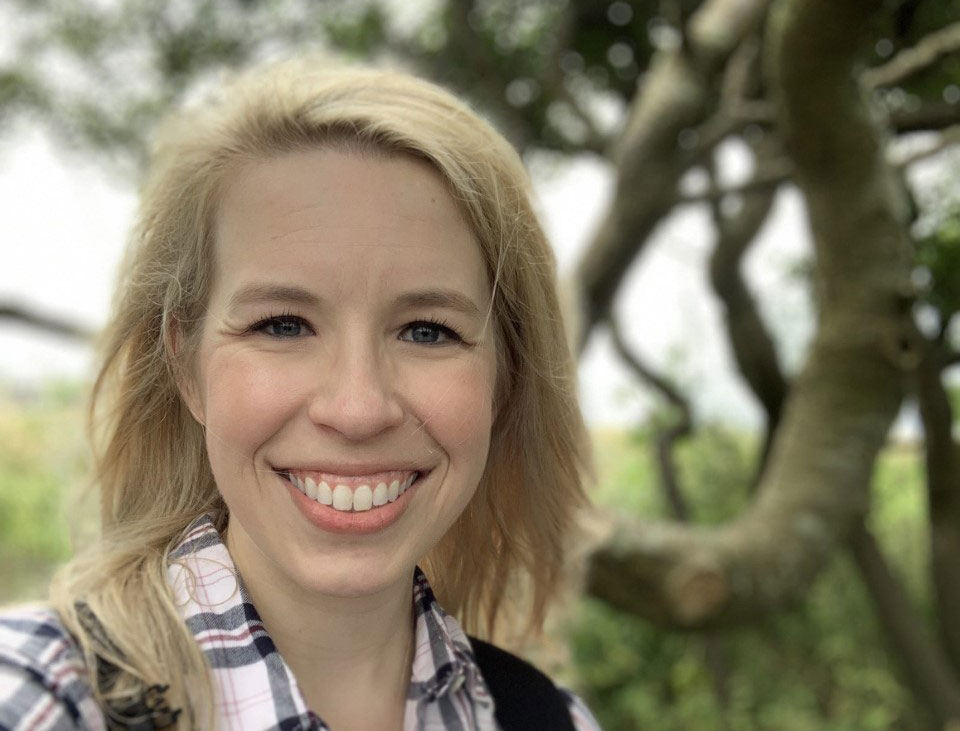Krystalyn Weaver: From Pharmacy, to Policy, to Law

Krystalyn Weaver (‘21) attended pharmacy school envisioning a career in a lab doing drug research, but ultimately found her calling in the legal field and is now wrapping up her final semester at Antonin Scalia Law School. After finishing pharmacy school at the University of Toledo, Weaver went into association management with a policy focus. Upon completing a residency at the American Pharmacists Association in D.C., she developed an interest in policy and advocacy. Through 2019, she worked for the National Alliance of State Pharmacy Associations (NASPA), where she focused on state-level policy work, examining trends in pharmacy practice across the country and helping individual state pharmacy associations formulate their policy arguments to adapt to laws as necessary. Her focus at NASPA involved various scope of practice issues that are particularly relevant now, including helping states to expand pharmacists’ ability to provide services such as vaccine administration.
Looking to the future, Weaver wanted to move from a career focused on state-level pharmacy policy to have more options to explore broader health policy, particularly on a national level. “I saw that everyone around me who had jobs that I was interested in had a JD next to their name,” she recalls. Weaver decided it was time to revisit the idea of law school, and was drawn to Scalia Law School because of the part-time program, which allowed her to continue working full-time for her first two years. Weaver soon decided she wanted to pursue a more legally-focused career.
“I’m just interested in a lot of things,” says Weaver of her diversified career path. “I’m for taking plunges, and I have a lot of varied interests. It didn’t ever seem like a big transition.” She attests that there is some degree of shared skill sets for legal and pharmaceutical professions. “Working with a client is very similar to working with a patient,” she explains. “There are defined answers and issues in the world, but you have to customize that to a given fact pattern in the law, to a given patient in pharmacy practice. And so all the best things about practicing pharmacy… are also within legal practice, where you’re customizing known solutions to legal problems.”
Weaver says though she didn’t know what to expect going into law school, that she was surprised by her interest in the doctrinal components of the law. In part, this interest is what precipitated the shift in career focus. “The intellectual pursuit that exists within any legal problem is really appealing to me,” she says, adding that the creative component to finding answers echoes parts of her health policy background. After graduating, Weaver will be joining the firm Sidley Austin LLP in Washington, D.C. “I’m really looking forward to going to a law firm and working with brilliant people,” says Weaver.
Weaver expresses gratitude for her education at George Mason, and notes that the school did an excellent job pairing her with student and alumni mentors who had similar backgrounds in health policy, and who gave her helpful career and education advice. Further, she is greatly appreciative of the people and professors she got to know along the way. She says her class is composed of talented people from diverse backgrounds, and that a huge part of her experience at GMU was building connections with her peers. Of her professors, she says that many have been hugely impactful, and that she hopes to stay in touch with them throughout her career, naming Professors Helen Alvaré, Adam White, J.W. Verret, and Christopher Newman as especially influential. “I feel like I have a good foundation from what I have learned at Mason to be able to do lots of different things,” says Weaver.